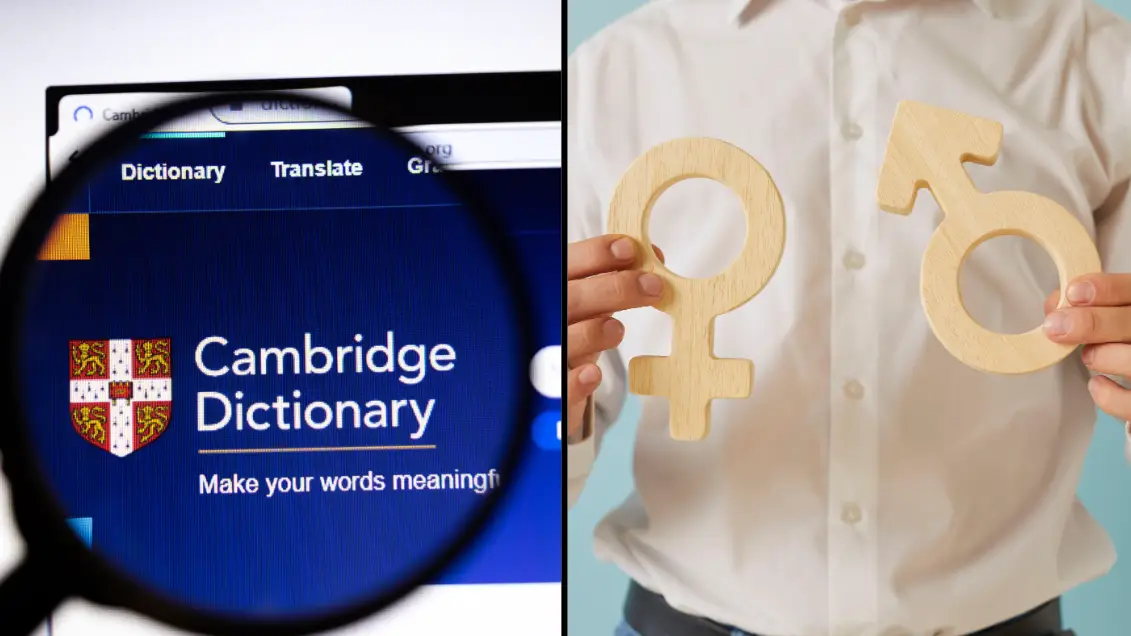
Cambridge Dictionary online has officially changed the definition of ‘man’ and ‘woman’ to be more inclusive.
News Corp reported that the dictionary has now updated its definition for ‘man’ to be ‘an adult who lives and identifies as a male though they may have been said to have a different sex at birth.’
Meanwhile, ‘woman’ now reads ‘an adult who lives and identifies as female though they may have been said to have a different sex at birth.’
It also provided examples of how the word might apply in the context of someone who is transgender.
Advert

One read ‘She was the first trans woman elected to a national office,’ while another said, ‘Mary is a woman who was assigned male at birth.
While the changes aim to include people who do not identify with the gender they were assigned at birth, it’s already caused quite a stir.
Many argued that reforming the dictionary’s categorisation of gender is highly inaccurate, and society could see ramifications for not implementing these pronouns accordingly.
Political commentator Steven Crowder wrote: “The Cambridge Dictionary just changed the definition of ‘woman'. Remember, if you can control the language, you can control the population.”
Whereas broadcaster Sophie Corcoran tweeted: “Try and tell me they’re not trying to erase women.
“Cambridge dictionary have changed the definition of a woman. This cannot be accepted. We will not be erased.
“Woman = adult human female. Not someone who ‘identifies as female’.”
However, the president of the Beaumont Society, a charity that supports transgender and non-binary people, Dr Jane Hamlin, welcomed the development, as per The Telegraph.
She said: “This is such good news. There has been so much misinformation and rubbish written about definitions of ‘man’ and ‘woman’ lately, but these definitions are clear, concise and correct.
"Congratulations to the Cambridge Dictionary team!”
Whereas sculptor Daniel Lismore wrote: “(Trans-exclusionary radical feminists) gonna blow a gasket. Trans people deserve to be recognised for who they are.”
However, Cambridge isn’t the only dictionary to make amendments recently.
In July of this year, Merriam-Webster added ‘having a gender identity that is the opposite of male’ for its definition of ‘female’.
The also same applies when describing what a ‘male’ is.